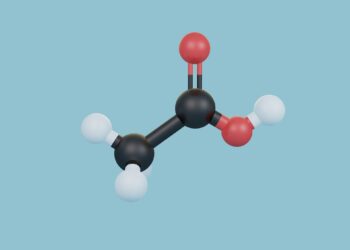When you chill things close to absolute zero, everything slows down to the point that even the vibration of atoms can come to a grinding halt. This is what researchers at Harvard achieved during an experiment in which they’ve generated the slowest chemical reaction yet. This allowed them to buy enough time to image intermediate chemical compounds that would have otherwise assembled into something else too fast for even our most advanced instruments to follow.
The coldest bonds in the history of molecular chemistry

Absolute zero — the coldest possible temperature — is set at -273.15 °C or -459.67 °F. In experiments closer to room temperature, chemical reactions tend to slow down as the temperature decreases. As you cross into the ultra-cold realm, you’d expect no chemistry at all to happen — but that’s just not true.
Researchers at Harvard University chilled a gas made of potassium and rubidium atoms to just 500 nanoKelvin. For reference, this is millions of times colder than interstellar space.
Even at such frigid temperature, atoms and molecules still react — and they do so slowly enough for scientists to see everything. When the potassium and rubidium molecules interacted, researchers were able to image for the first time the four-atom molecule that was created in an intermediate step.
At room temperature, chemical reactions occur in just a thousandth of a billionth of a second. Previously, scientists used ultrafast lasers like fast-action cameras to snap images of the reactions as they occur. However, because the reaction time is so fast, this method cannot image the many intermediate steps involved in a typical chemical reaction.
“Most of the time,” said Ming-Guang Hu, a post-doc researcher at the department of chemistry and chemical biology at Harvard University and first author of the new study. “you just see that the reactants disappear and the products appear in a time that you can measure. There was no direct measurement of what actually happened in the middle.”
In the future, scientists will be able to use a similar method to study other chemical reactions in minute detail. Observations aside, such a technique may also enable researchers to tamper with chemical reactions in a more controlled manner, with potential applications in the pharmaceutical, energy, and household product industries.
The findings were reported in the journal Science.






